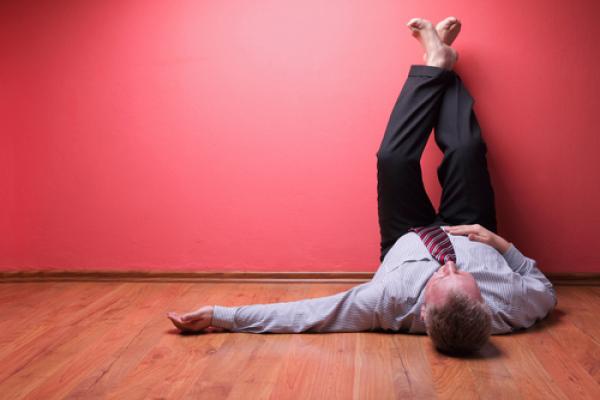Hurricane Sandy. Sandy Hook. The Fiscal Cliff. Next month the headlines will change and the (un)natural disasters will have new names, but the tsunami of information coming at us will continue to swell.
For the last decade, we’ve been told that we live in the age of information overload. We can do anything, buy anything, and find out about anything twenty-four hours a day, seven days a week. The problem is that our 24/7 world is not only making us anxious and unhappy — it is killing us.
A growing number of studies reported in the medical literature and popular press all point in the same direction. This generation’s brave new experiment of working more and resting less is making us fat, anxious, and short-lived.
As a former ER physician, I treated the physical and mental effects of our always-on society in my patients. As an A+ personality type, I felt the ramifications in my health, my marriage, and my work. Then a decade ago, my family switched from a 24/7 way of life to a 24/6 rhythm. On multiple levels, taking a weekly “Stop Day” saved our lives. It can save yours, too.
Eight Days a Week
Some four thousand years ago on the Sinai Peninsula, a quick-tempered abolitionist repelled off the north face of Mount Sinai with a Top Ten list of thou shalls, thou shalt nots, and one remember. The fourth on his list told everyone and everything, including beasts of burden like you and me, to remember to throw life in park one day out of every seven.
For the last 2,000 years, Western society has observed a day of rest each week. Only in my lifetime has this 24/6 prescription been lost — and it’s making us physically, emotionally, and spiritually ill.
I am not advocating for the reenactment of Blue Laws. But as a former laborer in the 24/7 world of medicine, and as a practitioner of a weekly day of rest for the past decade, I can attest to the healing power of rest — for individuals who chronically feel stretched too thin, and for us as an overworked nation.
What is rest? Determine what work is for you, and don’t do it one day in seven. Then protect the right of others to rest: The Fourth Commandment specifically extends the right of stopping one day a week to children who are not literate, illegal aliens, and minimum wage workers (Ex. 20:8-11).
Human Beings, Not Human Doings
We are the richest society ever to exist, yet many express discontentment with what they have. We have great literacy concerning nutrition, yet we are obese. We have access to up-to-the-minute information but feel overwhelmed. Perhaps the solution to America’s anxiety is not more, but less.
Political seasons, hurricane seasons, and new threats will continue to loom, but taking a day of rest one day a week helps us define ourselves outside of these events — not as human doings but as human beings.
Everything has limits, including us. To believe we don’t have boundaries is hubris. As global challenges confront us, we must not tune out — nor must we gorge ourselves at the all-you-can-eat buffet of news and information. Instead, we must find our balance in a day of rest.
A day of rest each week and multiplied by an average lifespan equals a decade in rest and peace. Take away a decade of anything —education, nourishment, love — and it is bound to have a profound effect on our lives.
What’s missing from our lives does matter. Rest, love, and patience are not the subjects of news headlines or debates, but they are the things that make society civil and life worth living.
Perhaps the best thing we can do for the peace and healing of our country is to take a weekly day of rest, beginning now.
Matthew Sleeth, MD, a former ER physician and chief of a hospital medical staff, is executive director of the faith-based nonprofit, Blessed Earth, and is a monthly guest preacher at the Washington National Cathedral. Dr. Sleeth is the author of the new book, 24/6: Prescription for a Healthier, Happier Life, which as a New Year’s promotion, is available in e-book form on Amazon for $2.99 (regularly $12.99). Special offer expires January 5, 2013.
Photo: LSaloni / Shutterstock
Got something to say about what you're reading? We value your feedback!
